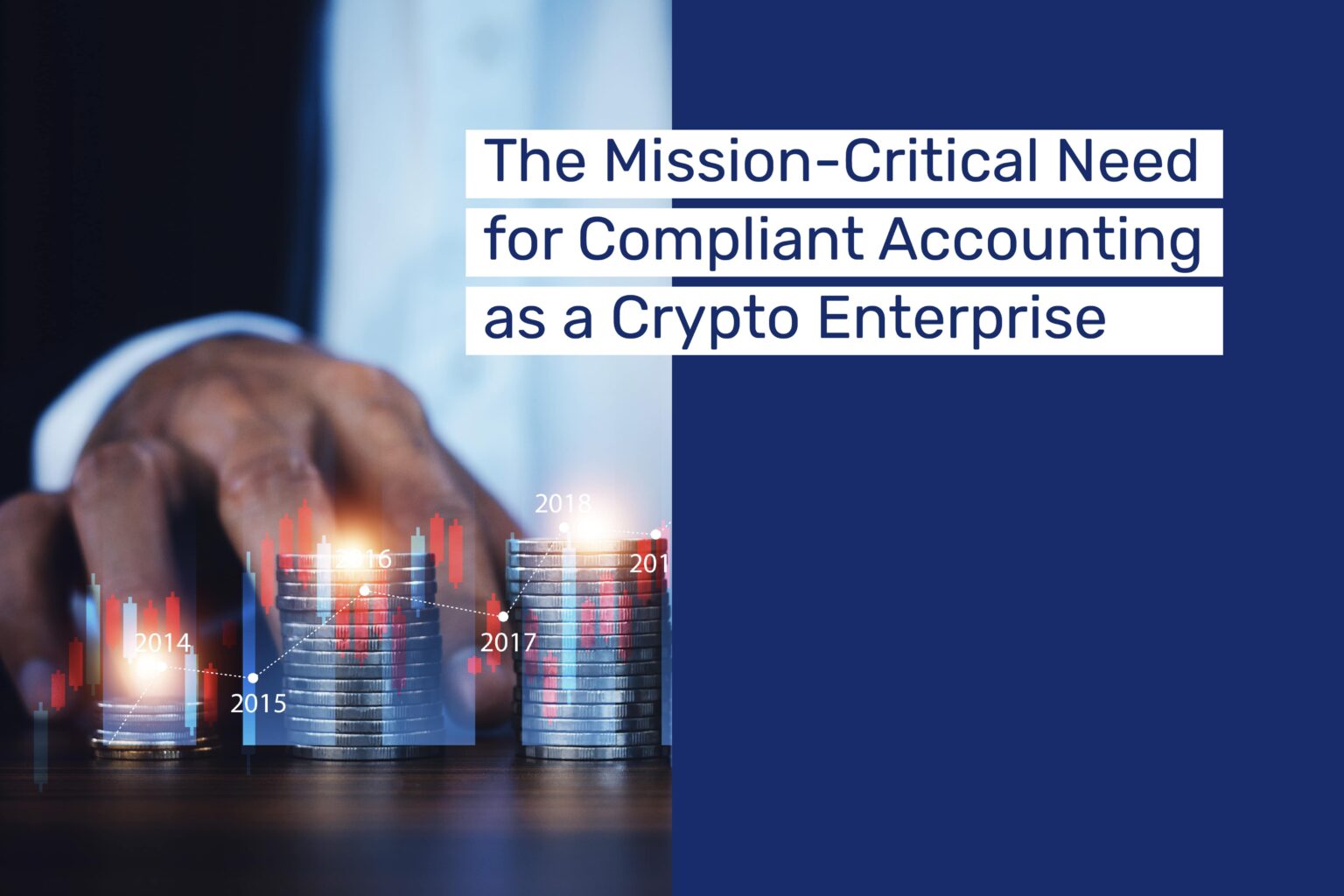Gain control of your digital asset accounting – or you may risk delaying, or failing, your audit or capital event
At the forefront of this fast-emerging asset class, cryptocurrency and digital asset accounting can be remarkably complex. As an enterprise leader, you put immense effort into capitalizing on the opportunities of digital assets – but you should be wary of their challenges. As a digital assets enterprise, losing control of your accounting can result in delaying or even failing to complete an audit or a capital event.
Recently, a billion-dollar acquisition of a cryptocurrency company has fallen apart – and accounting has been identified as the likely culprit. To be fair, getting your books in order as a cutting-edge cryptocurrency company can be an extraordinary challenge. Crypto markets produce an immense volume of data across a myriad of protocols, exchanges, and wallets. In addition, the regulatory framework from both an accounting and tax perspective is continuously evolving – making compliance an ongoing challenge.
As your business prepares for future audits or capital events, one of the key pillars of success will be ensuring that your company has a sophisticated accounting solution for digital assets. Whether for auditors, prospective acquirers, or discerning regulators, you should prepare to achieve compliant accounting at scale.
Key pillars of success for compliant crypto accounting
As a leading crypto enterprise, you should enable solutions for the following key accounting considerations. Keep in mind that this is by no means an exhaustive list (especially as regulations evolve and as grey areas currently persist in this burgeoning industry) but here are the mission-critical pillars for successful digital asset accounting:
- Robust lot-level transaction tracking: Each digital asset acquisition must be tracked separately using “lot-level” tracking and inventory queues (typically FIFO for US GAAP). You should be able to identify new acquisitions and track cost-basis, book value, and fair value for each lot. To stand up to increasing industry (and SEC) scrutiny, you should be able to transparently zoom into individual lots to see when they were purchased, when they were disposed of, and what exchanges or wallets were used.
- Impairment reporting: Impairment calculations are a requirement today, although the FASB is currently evaluating whether this may continue. This means that anytime the price of your digital asset declines below the value of an individual lot’s cost basis, you must recognize an impairment event. The industry standard is to perform impairment using intraday pricing, and you must identify price dips the instant they drop below the current book value. In order to accurately track impairment at the lot-level, you also need to look at the applicable timeframe for each lot whereby you track the lows of the start point until the endpoint. (I.e. If you purchase one lot of $10,000 worth of BTC on the 15th of September and hold thereafter, when you close your books for September the applicable impairment analysis period for that lot is from the 15th to the last day of September.)
- Robust pricing support: For transactions that are occurring throughout the day, you must ensure that you are using pricing data that is closely associated with the timestamp of each transaction. Many companies will tie their pricing source that determines fair market value to their principal market, which put simply means an accessible exchange that has the highest trading volume for a given asset. (To learn more about the nuances of identifying principal markets, see our explanation here).
- Reporting transparency: You should be able to gain insight into aggregated gain/loss information for each lot-level transaction. But don’t neglect auditors’ desire to drill deeper into the details, and you shouldn’t be satisfied with aggregate summary-level reporting alone. Ensure that you have the ability to track individual assets, transactions, lots, and gain/loss information from asset disposition. To compound the complexity, you should be able to timestamp each lot-level transaction with the associated fair market value given your principal market.
- Work with industry-leading partners: In the fast-emerging world of digital assets, you will inevitably encounter grey areas. At TaxBit, we have built a team of industry-leading experts and veterans with decades of experience working at the IRS, Big Four firms, FASB, and enterprise businesses. We also partner with the largest and most reputable professional service providers in the market. Digital asset enterprises of any kind are invited to consult our team and partners at any time.
As scrutiny increases and crypto matures, compliance is key
Even if you don’t have any plans to sell your company or go public, you will almost certainly require an audit at some point. Many crypto companies have struggled with achieving compliant accounting at scale, especially as cryptocurrencies, exchanges, and protocols operate 24/7 while data sources and transaction counts can scale into the tens (or even hundreds) of millions. Making sense of this ecosystem can be exceptionally difficult for new entrants and existing players alike.
In addition, regulatory scrutiny is increasing for both private and public firms, and the digital asset class is fast-evolving. You need to ensure that your accounting is in order to withstand increasing levels of scrutiny by institutions such as the IRS or SEC. Whether as a relatively new company plotting your next fundraise or acquisition, or as a publicly-traded company… TaxBit has built the enterprise-grade accounting solution.
Our technology is trusted by some of the world’s largest regulatory agencies, accounting firms, and crypto enterprises as we enable the following:
- Scalability to handle tens of millions of transactions
- A controlled environment to support robust control frameworks such as ISO 27001 or SOC 1 & 2 audits
- Support for GAAP-compliant journal-entry and asset tracking
- Audit support that is built with your auditors in mind
- Transparency into transaction and accounting details
- Industry thought leaders with technical accounting expertise; former FASB/AICPA/Big4 employees working with national offices as your partners
.png)


